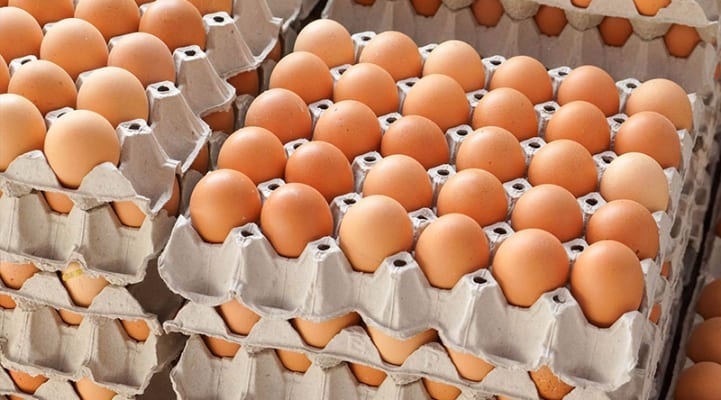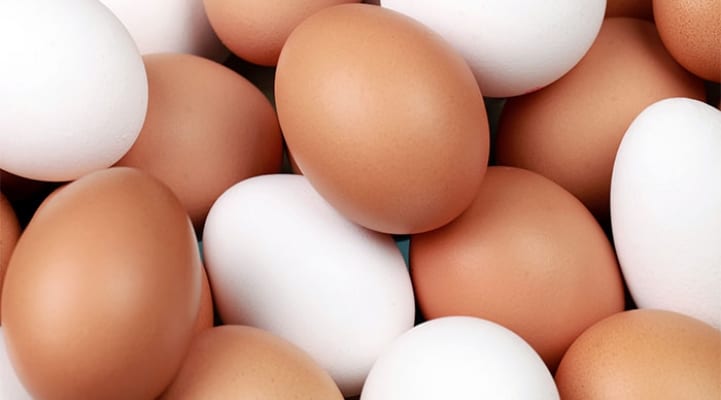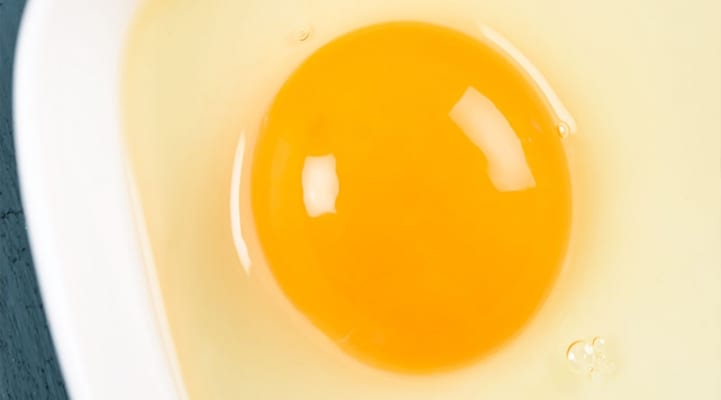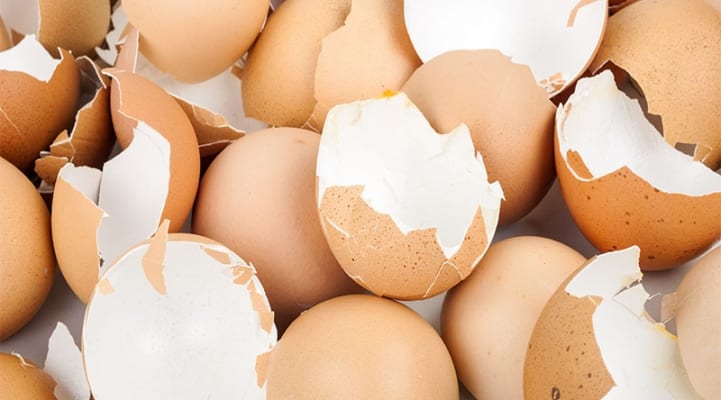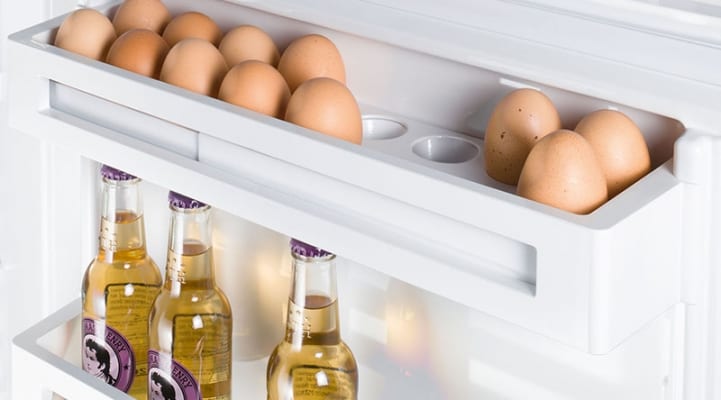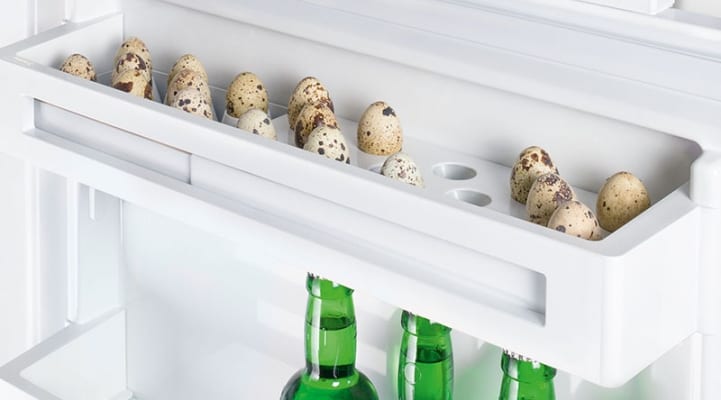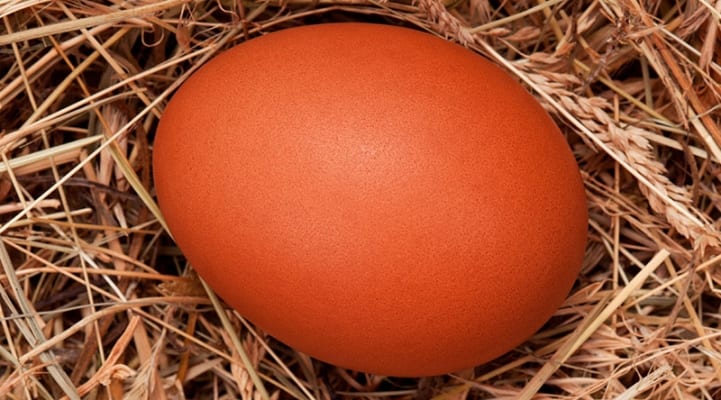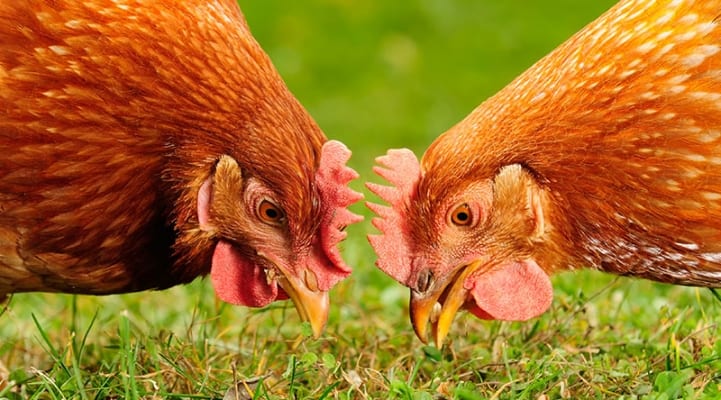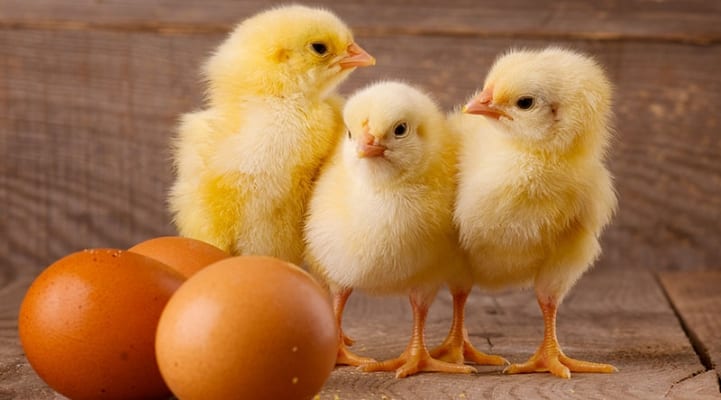There’s a lot of interest in the humble egg right now, so Liebherr’s social media team has come up with 10 little known egg facts so that you can impress others with your egg-ceptional knowledge of this very healthy food!
- In 2016, around 12 billion eggs were produced in Germany, with the largest proportion – 7.6 billion of them – supplied by barn-raised hens.

- To avoid the risk of salmonella poisoning, eggs should be kept in a fridge at less than 5°C. Salmonella can’t multiply at low temperatures but, at room temperature, it can multiply at an explosive rate!

- Due to their high protein content, eggs rank as one of the most nutritious foods in the world. A typical large egg (weighing about 70 g) provides about 16 % of the daily adult protein requirement.
- A large egg contains about 9 grams of protein, 8 grams of fat, and traces of carbohydrates. It also, to some extent, contains all of the essential vitamins and minerals (except for vitamin C). The vitamins are predominantly located in the egg yolk.

- The way a hen is fed influences the thickness of the egg’s shell, as well as the egg’s taste and yolk colour. If the hen’s feed contains too little calcium, or if calcium deposition is disturbed during ovulation, the hen will lay eggs with thin shells or even no shells at all.

- The egg’s shell, which separates the egg from the outside world, is only about 0.3 to 0.4 mm in thickness. The eggshell is permeable and contains between 7,000 and 17,000 pores. These pores facilitate air exchange between the egg’s contents and the outside world during incubation and hatching. Because of these pores, eggs should not be stored near strong-smelling foods, as they can take on the flavour of these smells.

Eggs keep longer when stored pointed-end down because the blunt end has an air cell between the inner and outer shell membranes. During storage, the egg loses moisture and the air cell gets bigger. Keeping the air cell at the top of the egg helps prevent it rupturing, which would risk spoiling the egg. By the way, the adjustable egg tray is designed to fit many of Liebherr’s built-in Comfort range appliances and all its built-in Premium range fridges and fridge-freezers. The tray can be extended to accommodate the required quantity of eggs, providing safe storage for up to 20 chicken eggs or, turned over, 28 quail eggs. It is styled so that the eggs can be stored pointed-end down to maximise their shelf life.
- Eggs are the only fresh food product of animal origin that doesn’t have to be stored refrigerated in shops and supermarkets. For instance, in Germany, eggs can be displayed unrefrigerated provided that they are not more than 18 days old. This is acceptable because not only does the shell protect a fresh egg, the egg white also provides natural protection in the form of different proteins. That being said, it’s a good idea to store eggs in the fridge after purchase. The Liebherr BioFresh compartment is a great place to store fresh eggs.
- Thanks to their oval shape, eggs are very stable: even though they only have a very thin shell they can withstand pressure of several kilograms. If force is applied to any point on the shell, it is evenly distributed across the entire surface of the egg, and this ‘hidden strength’ is particularly important when the hen is incubating her eggs.

- The chicken is the most common domestic bird worldwide; there are estimated to be about 3.5 billion chickens on planet earth!

- And, regarding the chicken and the egg dilemma – without getting into any major philosophical arguments – the egg had to come first, of course. Evolutionary research has cleared this particular one up because eggs pre-dated chickens! Chickens belong to the bird family, which has been around for a mere 150 million years, but eggs were also laid by giant dragonflies (among other creatures) some 300 million years ago.

If you enjoyed this post, please share it on Facebook, Twitter or one of the other social networks in the list below. If you have any questions, please write to us using the comment function below this post, or discuss your questions with us on Facebook.
